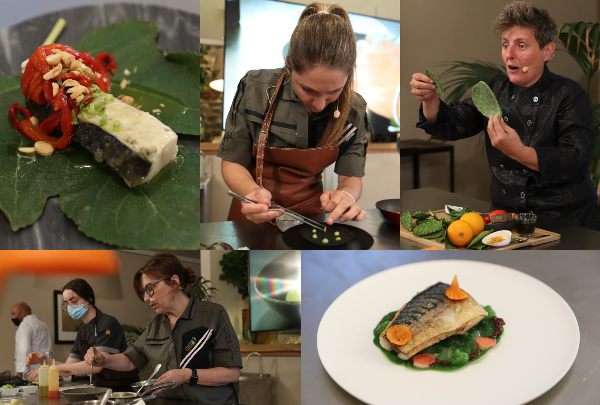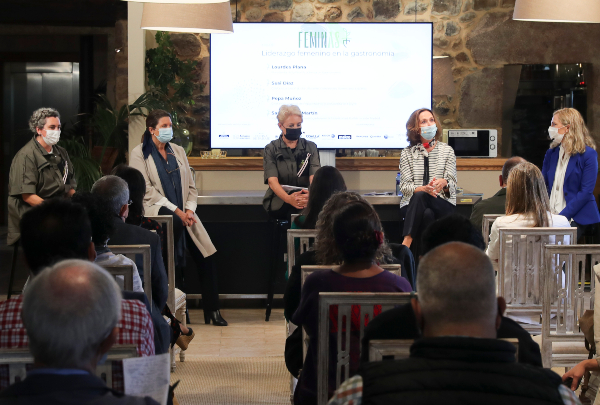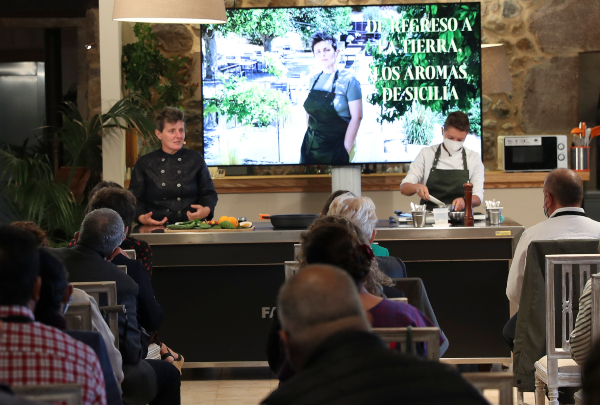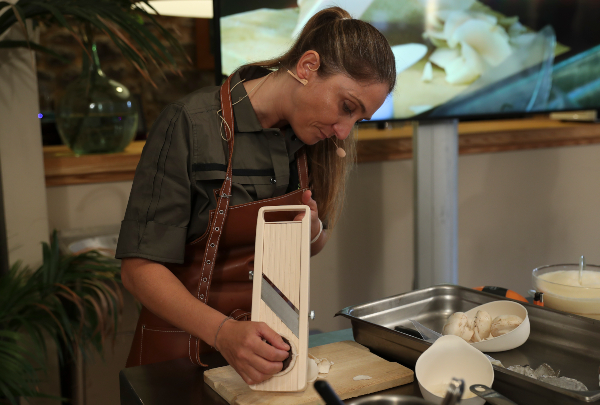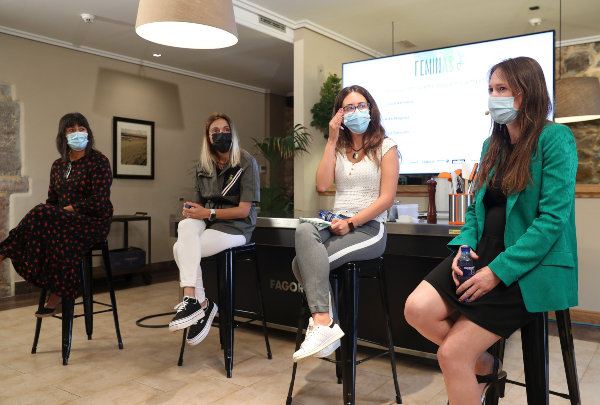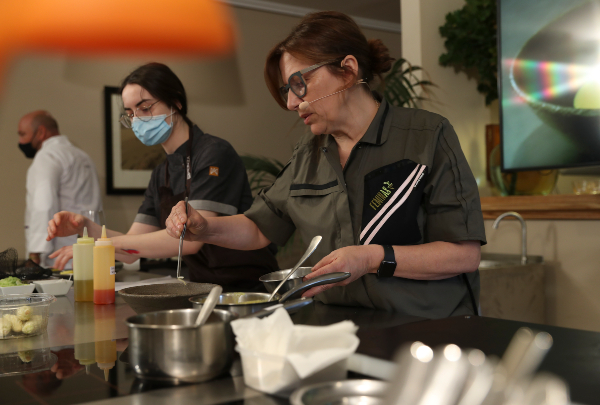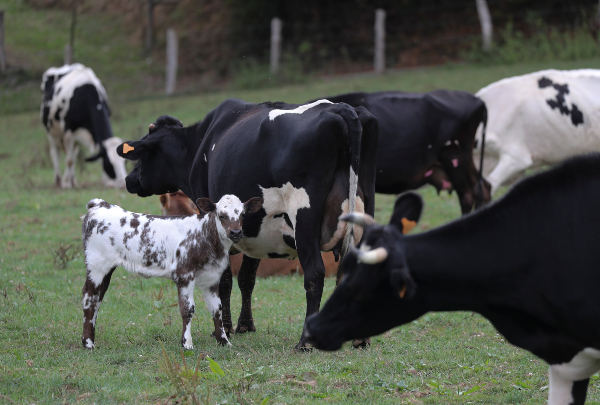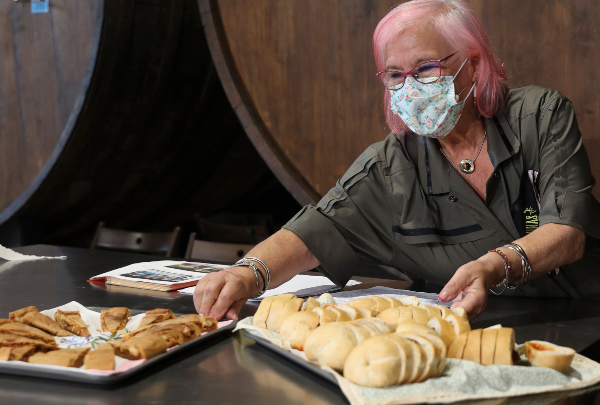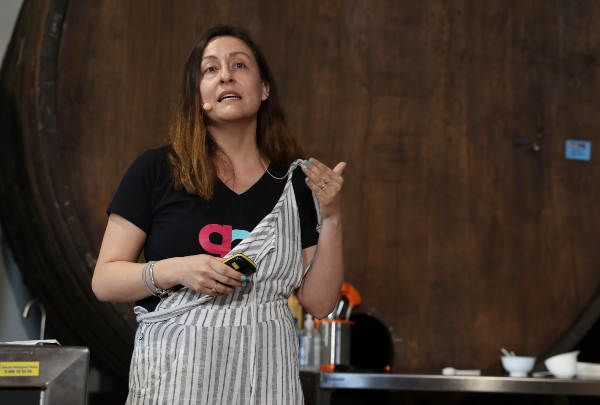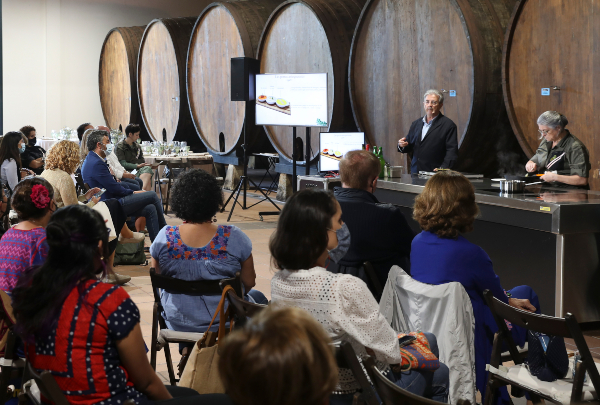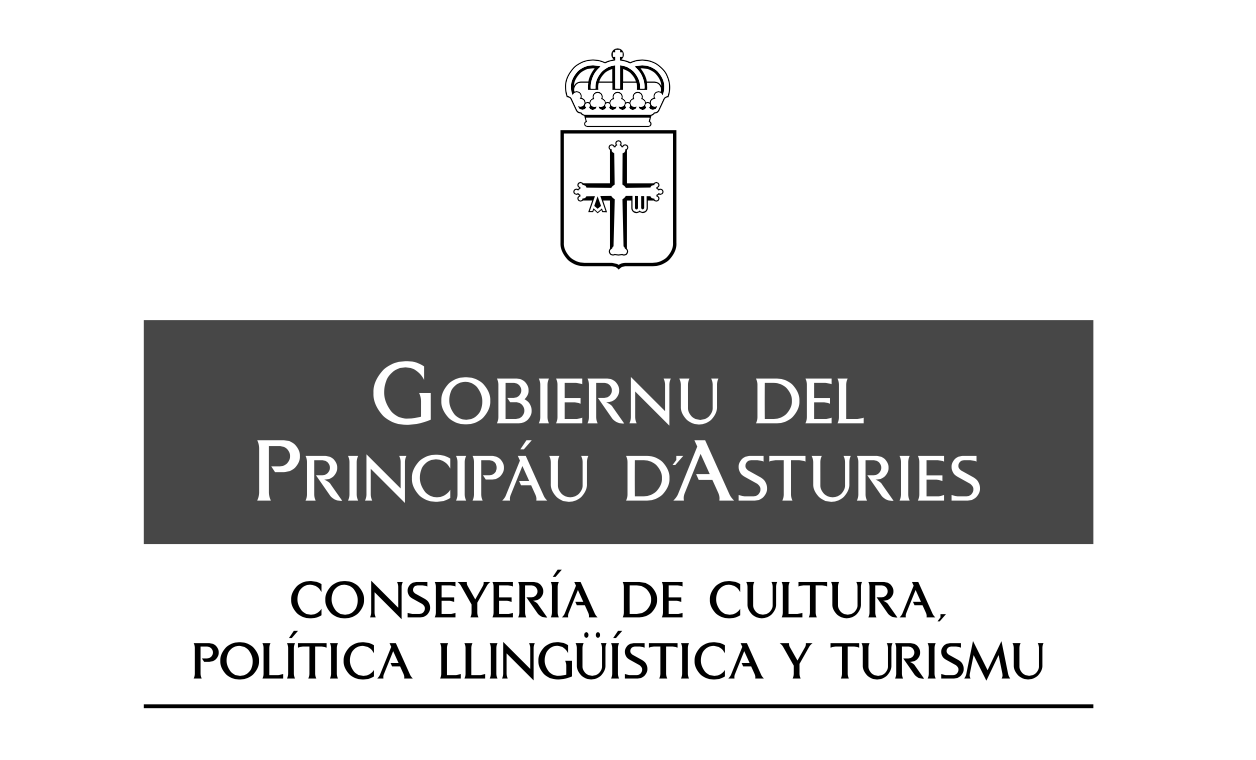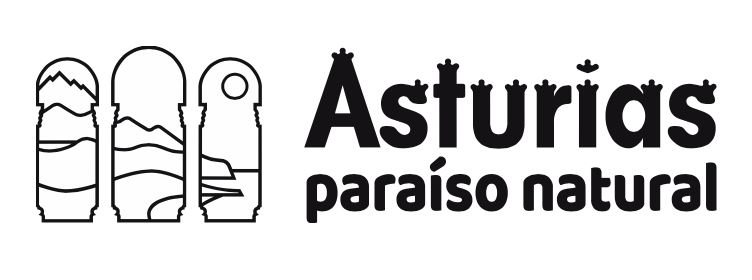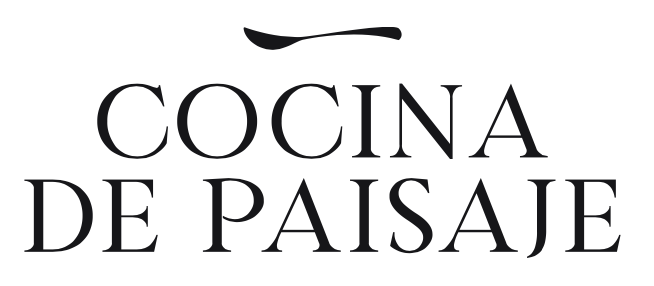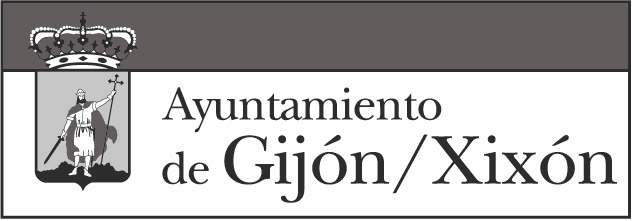News
Narda Lepes: “Showcasing the mandioca means showcasing women and community work"
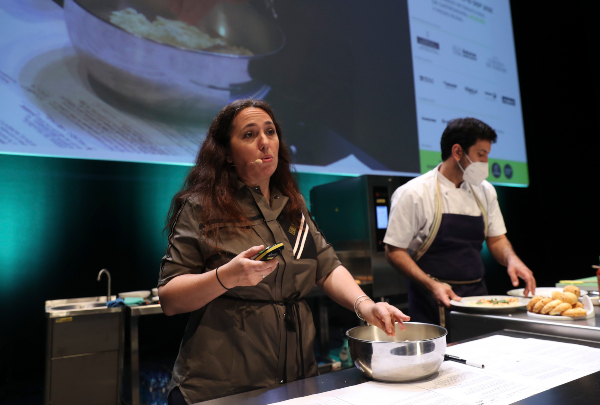
Argentina's mediatic chef Narda Lepes is at FéminAs to talk about production of mandioca and its considerable economic and environmental results for rural producers, with a healthy outcome for the 1,000 million people that consume the product.
Fabe beans, for example, came to Asturias from America; today Argentinian chef Narda Lepes (Narda Comedor, Buenos Aires) arrived to give her first talk at the congress. The winner of Latin America’s Best Female Chef Award 2020 came to Universidad Laboral's theatre in Gijón loaded down with yuca, aipim, guacamota, casabe, casava, lumu… To Lepes this means "mandioca", her name for a plant with a thousand names and a thousand properties. “A plant which only grows in the poorer areas of America, Africa and Asia, and that's the problem”.
By producing a few of the one thousand and one recipes that can be thought up by it ("yuca" fried or boiled, "yuca" bread, mbejú, farofa, arepas, biscoitos de polvinho, tapioca …, “simple rural fare”), Lepes praises a foodstuff “that has no gluten, with no fertiliser, a superior foodstuff that has everything people want now, but is marked down now because of where it's grown”. And this means rural environments, and mainly grown by women, "creating a link with the three main themes of the congress”.
The chef touched on the people who grow this crop. “The mandioca is easy to peel, but it has to be peeled at the same time as the harvest, so they need a lot of people. Otherwise it oxidises. And this gathering of people, mostly women, is the factor that generates community, and also wealth for those people”. She added: “Since it's hard to peel and may be toxic, you have to know how to handle it, and there isn't much theft”, an asset for the rural communities that grow it, who merely seek more visibility to continue with their task". That is why Lepes was in Spain.
The chef finished off with praise for the virtues of the world's fourth largest carbohydrate consumption, "the basic food of 1,000 million people, but people we don't see because most of them are from poor countries". A shout for help from the media, a call for communication, "because we need a lot of infrastructure for production". She used the first person plural and the feminine form "nosotras" 'we' form ("nosotras"), as she remembered: “90% of what women save is reinvested in health and education. In other words, in the community. So giving work to women means giving work to those communities. But up to 75% of the world's non-remunerated jobs are done by women. That brings us into the context”. FéminAs will continue to focus.

